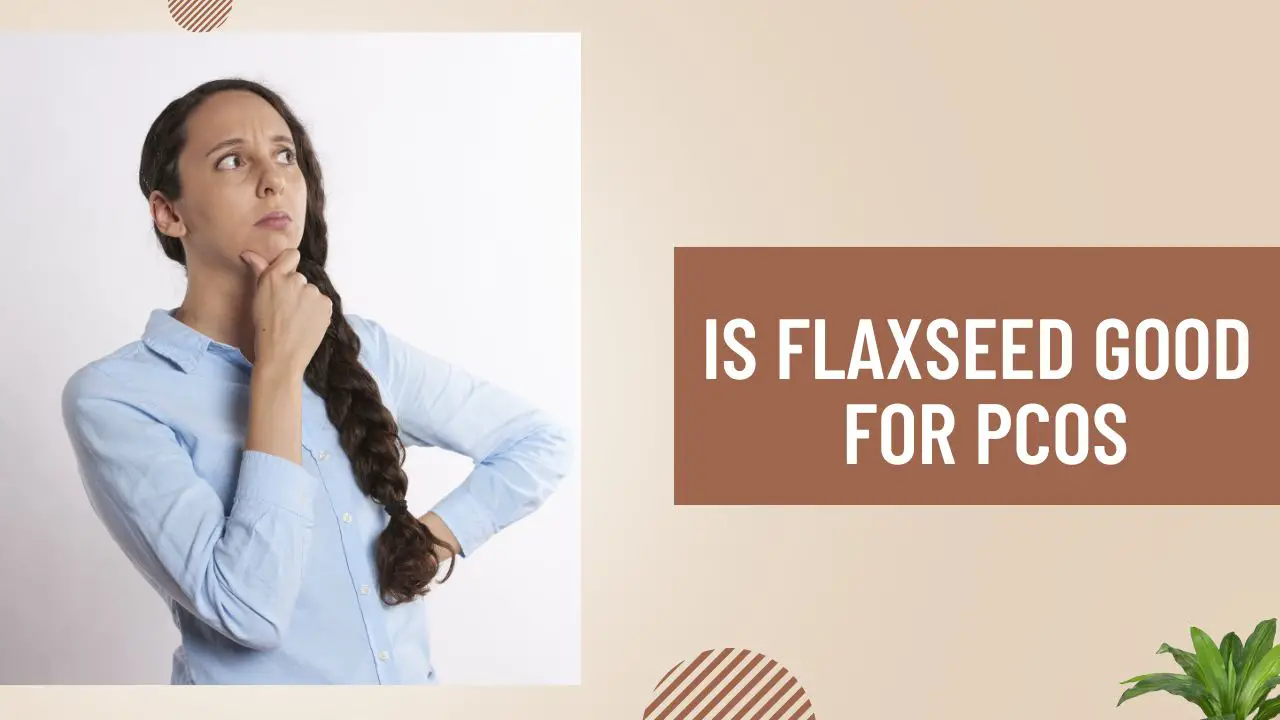Physical Address
304 North Cardinal St.
Dorchester Center, MA 02124
Physical Address
304 North Cardinal St.
Dorchester Center, MA 02124

Flaxseeds, small in size and either brown or golden in color, are the product of the flax plant. Flaxseed, also referred to as linseed, has gained significant attention in recent times due to its purported health benefits, with a historical consumption history attributed to its nutritional richness and favorable health effects. It serves as a potent reservoir of essential nutrients, encompassing dietary fiber, beneficial fats, and an array of vitamins and minerals. Notably, flaxseeds hold promise for individuals grappling with PCOS, a prevalent hormonal disorder afflicting numerous individuals globally. PCOS manifests through diverse symptoms, including weight fluctuations, irregular menstrual patterns, and hair thinning, among others.

Flaxseed is a valuable component in PCOS management, offers support through its nutrient-rich profile. Packed with dietary fiber, healthy fats, and essential vitamins, flaxseed aids in addressing the complexities of Polycystic Ovary Syndrome (PCOS). Here are some benefits of taking flaxseed for individuals with PCOS.
One of the hallmark characteristics of PCOS is hormonal imbalance, notably an excess of androgens, or “male hormones.” Flaxseed contains lignans, compounds with estrogen-like properties that have been linked to hormonal regulation. Studies suggest that these lignans may help modulate estrogen levels and thereby contribute to more regular menstrual cycles and reduced androgen excess in individuals with PCOS.
Insulin resistance, a common factor in PCOS, can lead to weight gain, obesity, and an increased risk of type 2 diabetes. Flaxseed's soluble fiber content is pivotal here. This fiber slows down the digestion and absorption of sugars, leading to more stable blood sugar levels and improved insulin sensitivity. By supporting glucose regulation, flaxseed may indirectly aid in managing insulin resistance and its associated consequences.
PCOS individuals often face an elevated risk of cardiovascular complications. Flaxseed's high concentration of omega-3 fatty acids is of particular interest in this context. Omega-3s are renowned for their anti-inflammatory properties, which can mitigate the chronic inflammation associated with PCOS. Furthermore, these fatty acids have been shown to improve lipid profiles, reducing the risk of heart disease—an essential consideration for individuals with PCOS.
A crucial component of managing PCOS is maintaining a healthy weight, and flaxseed may help with this goal. Flaxseed's fiber and good fats may cause a sensation of fullness and satiety, which may prevent overeating and support weight-loss attempts. For those with PCOS who are dealing with weight-related concerns, this natural appetite control may be extremely helpful.
Healthy digestion is crucial for hormonal regulation and overall well-being. Flaxseed's dietary fiber content promotes digestive health by preventing constipation and supporting gut function. A well-functioning digestive system is integral to efficient hormone metabolism, which is particularly relevant in the context of PCOS.
The potential advantages of flaxseed in managing PCOS symptoms derive from its nutrient-dense composition, including lignans, omega-3 fatty acids, and dietary fiber. Although it doesn't offer a panacea for PCOS, integrating flaxseed into a well-balanced diet could contribute to enhanced hormonal balance, insulin sensitivity, cardiovascular health, and weight management. Individual responses may vary, necessitating consultation with a healthcare professional prior to making substantive dietary adjustments. By combining the potential benefits of flaxseed with other prudent lifestyle modifications, individuals grappling with PCOS can strive for enhanced symptom control and overall well-being.
Flaxseed contains compounds called lignans, which have antioxidant properties and can potentially help balance hormone levels. These lignans might help regulate estrogen metabolism and reduce excessive androgens, which are often elevated in PCOS.
There is no standard dosage for flaxseed in PCOS management. However, starting with around 1-2 tablespoons of ground flaxseed per day is a common recommendation. It's important to consult a healthcare professional before making significant dietary changes.
Flaxseed is generally safe for most people when consumed in moderation. However, some individuals might experience digestive issues or allergic reactions. If you're on blood-thinning medications, have a history of hormone-related cancers, or are pregnant, it's best to consult a doctor before adding flaxseed to your diet.
Yes, menopausal women with PCOS might also benefit from flaxseed consumption due to its potential hormone-balancing and cardiovascular benefits. However, it's advised to consult a healthcare provider before making any dietary changes.
Flaxseed is not a cure for PCOS. It might help manage symptoms by addressing hormonal imbalances and reducing inflammation, but a comprehensive approach involving a balanced diet, regular exercise/" title="exercise" data-wpil-keyword-link="linked">exercise, and medical guidance is crucial for managing PCOS effectively.